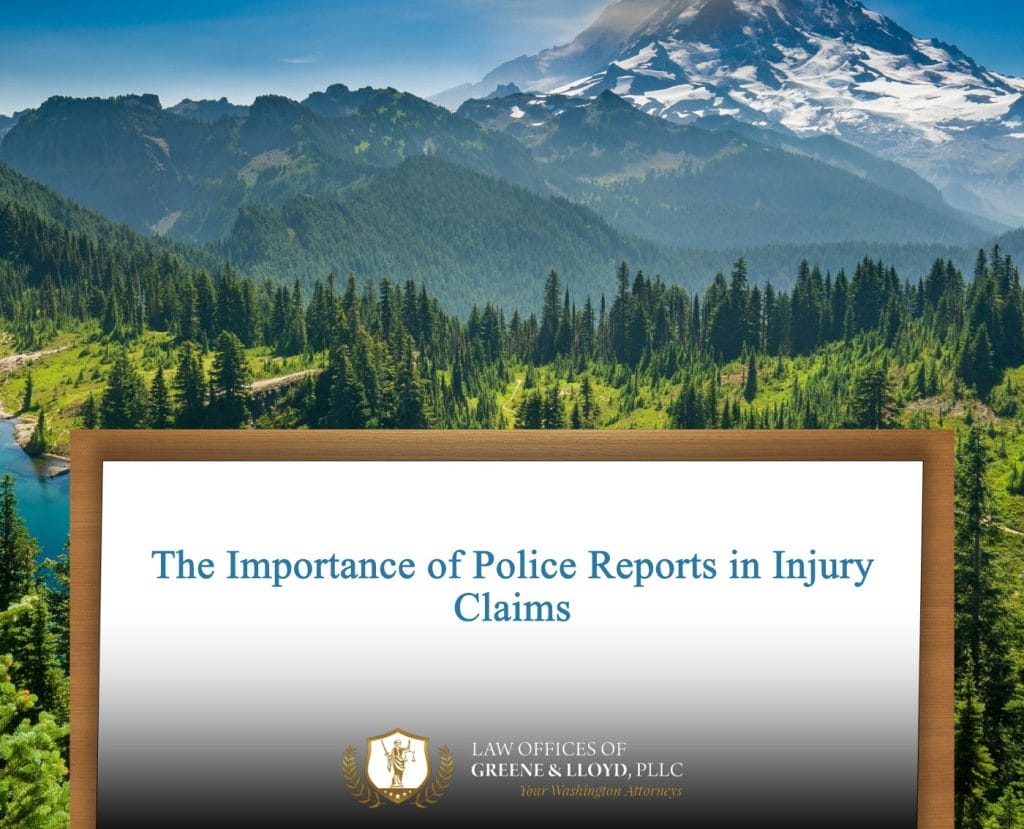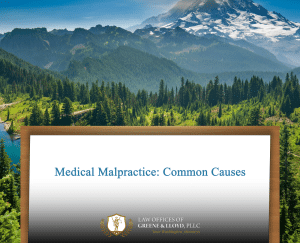## Understanding Police Reports and Their Role in Injury Claims
Police reports play a critical role in personal injury claims, specifically when it involves car accidents, slips and falls, or any other incidents that necessitate legal action. When an injury occurs, a police report often serves as an objective record detailing the circumstances surrounding the event. This record is collected by law enforcement officers who arrive at the scene of the incident, and it includes important information such as statements from involved parties, witness accounts, and any observed injuries or damages.
In the context of injury claims, police reports are invaluable because they provide an official account of the incident, which can significantly impact the outcome of a case. Insurers and courts typically give considerable weight to these documents, as they portray a neutral perspective regarding what transpired. For victims, having a police report can serve as concrete evidence supporting their narrative, which is crucial when establishing liability in injury claims.
When dealing with police reports in injury claims, it is vital for individuals to understand how to interpret these documents and leverage them effectively in their pursuit of compensation. Not only can it guide the legal process, but it can also help ensure that victims receive the full amount of damages for their injuries.
## The Significance of Police Reports in Injury Claims
Understanding the significance of police reports in injury claims goes beyond just recognizing them as formal documentation. These reports serve as a foundational element for a successful claim, influencing everything from initial negotiations with insurance companies to the eventual resolution of legal proceedings. One of the key aspects where police reports shine is their ability to present key details surrounding the incident, making them pivotal in determining fault or liability.
Moreover, police reports often contain essential information like the names of all involved parties, vehicle descriptions, accident locations, and time stamps. The presence of this detailed information serves not only to clarify the facts of the case but also to eliminate ambiguities that may exist concerning the incident. Thus, they help to create a clear timeline of events that can effectively support the claims made by the injured party.
Additionally, police reports can bolster your argument by featuring statements from law enforcement officers who respond to the scene. Their professional assessment can lend unemotional authority to the claim, thus compelling insurance companies or courts to take the report seriously. Given the high stakes often involved in injury claims, the strategic importance of a comprehensive police report cannot be overstated.
## Understanding Police Reports in the Legal Context of Injury Claims
The legal framework surrounding police reports in injury claims is multifaceted. First and foremost, these documents are classified as public records, which means that they can generally be accessed by anyone who has a legitimate interest in the incident. This accessibility also makes it possible for both parties—the injured and the liable—to examine the same material, thereby creating an objective basis for negotiations or litigation.
From a legal standpoint, police reports can serve as a critical piece of evidence during the discovery phase of a trial. They can facilitate the examination of each party’s position and facts, helping to shape the arguments that will be made in court. Furthermore, attorneys often rely on police reports to prepare for depositions and witness interviews, using the information contained within to build a stronger case for their clients.
In Washington State, rules governing the admissibility of police reports may vary, but generally, they are allowed to be presented during trial as evidence. The law tends to favor transparency, and the inclusion of police reports helps ensure that all pertinent information is available to judges and juries. This legal principle reinforces why securing a well-documented police report immediately after an accident is crucial for anyone considering filing an injury claim.
## Real-World Scenarios Involving Police Reports in Injury Claims
In real-world scenarios, the importance of police reports in injury claims becomes abundantly clear. For instance, consider a situation involving a multi-car accident on a busy highway. Each driver may have a distinct version of events, leading to conflicting accounts. A police report that offers a comprehensive account of the accident—including diagrams, conditions at the scene, and statements from involved parties—can resolve these discrepancies and provide a clear understanding of fault.
Another illustrative example could be a slip and fall case in a grocery store. If a shopper slips on a wet floor and sustains injuries, the store may dispute liability, arguing that they had taken appropriate safety measures. A police report, documenting the incident’s specifics and possibly witness statements confirming the store’s negligence, can be instrumental in substantiating the injured party’s claims and enhancing their position during negotiations.
Additionally, in workplace injuries, a report from local law enforcement that cites unsafe working conditions can serve as a key piece of evidence in a legal claim. This report, alongside medical records, can influence the amount of compensation an injured worker may receive, making it clear that the employer failed to provide a safe environment.
## Navigating the Steps to Obtain Police Reports for Injury Claims
The process of obtaining police reports for injury claims can be daunting if one is unfamiliar with local procedures. However, understanding the necessary steps can alleviate some of the confusion. The first step generally involves identifying the law enforcement agency that responded to the incident. This is crucial, as police departments often have their own protocols for processing requests for records.
Once you have identified the proper agency, you would typically need to fill out a request form. Many agencies offer downloadable forms on their websites, while others might require in-person requests. It’s advisable to prepare the necessary details, such as the date and location of the incident, the names of involved parties, and any report numbers, to expedite the process.
After submitting your request, it often takes a certain amount of time—ranging from a few days to several weeks—before you receive the report. Be prepared for potential fees associated with obtaining copies of the document. Keeping meticulous records of your request and any correspondence is essential, as it may aid in the event of a dispute over the report’s accessibility or completeness down the line.
## Common Pitfalls in Handling Police Reports for Injury Claims
When pursuing an injury claim, individuals must be cautious about common misunderstandings and mistakes made in relation to police reports. One common pitfall is the failure to request a copy of the police report in a timely manner. Delays in obtaining this crucial document can hinder the claim process and may lead to complications as evidence becomes less fresh or witnesses’ memories fade over time.
Another mistake is misinterpreting the contents of a police report. Many individuals might overlook specific terminology or nuances that can have significant implications for their claim. For instance, if the report identifies the client as “partially at fault,” this could severely affect their ability to recover full compensation for damages. Therefore, careful review of the report is essential for understanding its implications on claims.
Moreover, assuming the police report will be entirely favorable is a misconception that must be avoided. In some instances, reports may not accurately reflect the circumstances or may contain errors. Victims should not hesitate to address discrepancies or issues with law enforcement agencies and should proactively work to have inaccuracies corrected, as these errors can impact the outcome of their claims adversely.
## Recognizing the Right Time to Seek Legal Guidance
Understanding when to consult an attorney is crucial in injury claims, especially regarding the handling of police reports. Many individuals underestimate the complexity of injury claims and mistakenly assume they can navigate the process alone. Legal representation is often advisable immediately after an incident occurs, particularly when injuries are sustained, as this will ensure that all pertinent details are documented and preserved effectively.
Consulting an attorney is also important if the police report contains information that is unfavorable to your claim. Legal professionals can offer insights into how to address such discrepancies and how to mitigate their impact on your case. They can help strategize the best approach to handling negotiations with insurance companies, emphasizing the importance of presenting a strong argument grounded in accurate documentation.
Additionally, if the other party involved in the incident has hired an attorney, it may be wise to seek legal guidance even sooner. An attorney familiar with the legal landscape of injury claims can help you understand your rights, options, and the potential implications of the police report. This proactive approach can help safeguard your interests and make you aware of critical deadlines and requirements in your case.
## The Advantages of Having Legal Representation
The benefits of having legal representation in injury claims cannot be overstated, especially when concerning police reports and other critical documents. Attorneys offer invaluable support in guiding clients through the complicated nuances of the legal system. They can use their knowledge of local laws and court procedures to ensure that clients meet all necessary filing deadlines, decreasing the chances of procedural missteps that could derail a claim.
When it comes to interpreting police reports, legal professionals can leverage their expertise to extract key details that may be favorable to your claim. They can identify aspects that may otherwise be overlooked by an untrained eye, thus reinforcing your case’s position. Moreover, attorneys are skilled negotiators who can advocate on your behalf during talks with insurance companies, ensuring that the offered settlements accurately reflect your injuries and other damages.
Another key advantage of legal representation comes during trial proceedings. Should your case progress to court, having an attorney who understands how to present police reports and other evidence persuasively can be the difference between winning or losing your case. They can design and execute a compelling argument while calling upon witnesses and expert testimony to substantiate your claims, thereby strengthening your overall position.
## How Law Offices of Greene & Lloyd, PLLC Stand Out in Handling Police Reports for Injury Claims
At the Law Offices of Greene & Lloyd, PLLC, our commitment to serving the Washington State community is underscored by our extensive experience in navigating the complexities of injury claims, including the vital role of police reports. Our team is well-versed in the intricacies of local laws, ensuring that clients receive accurate, timely, and personalized legal services.
We understand the significance of police reports injury claims in solidifying your argument for compensation. Our attorneys diligently review these documents, extracting essential details and addressing any inaccuracies that may arise. With our guidance, you can rest assured that nothing will fall through the cracks as we work tirelessly to build a compelling case on your behalf.
Furthermore, our firm prioritizes communication and collaboration with clients. We believe that informed clients are empowered clients, and we take the time to explain each step of the process—including how police reports affect your claim. Our ultimate goal is to ensure that you feel confident and supported throughout your entire legal journey, receiving the best possible outcomes in the face of challenging circumstances.
## Frequently Asked Questions About Police Reports in Injury Claims
## Additional Resources for Navigating Police Reports in Injury Claims
Finding additional resources to navigate the complexities of police reports in injury claims can empower injured parties in their quest for justice. Various local and state websites provide comprehensive information about how to request police records. It is worth consulting the Washington State Department of Licensing, which may also offer guidelines regarding police report protocols.
Furthermore, several legal aid organizations can provide valuable information for those who might not have the resources to hire an attorney. These organizations often offer free consultations and can guide individuals in understanding their rights regarding police reports and injury claims.
Finally, community resources such as local advocacy groups can assist in connecting individuals with legal professionals, providing educational workshops, and sharing personal experiences related to navigating personal injury claims. Utilizing these resources can help individuals make informed decisions throughout the claims process.




